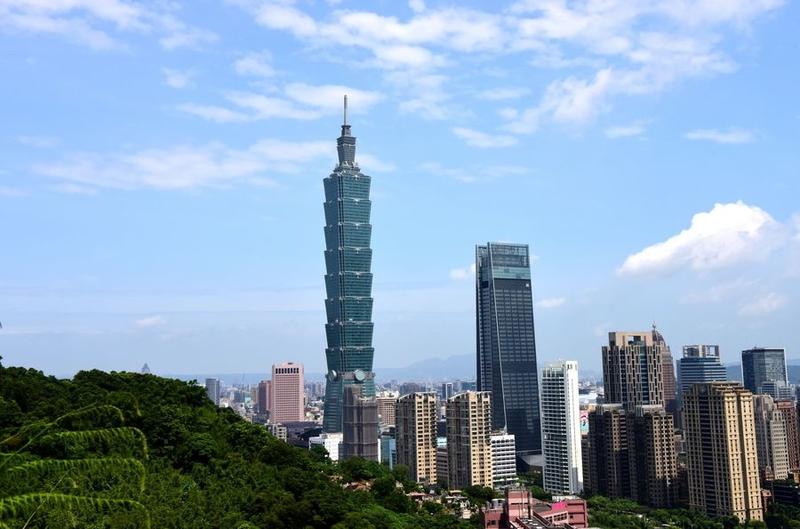 This undated file photo shows the Taipei 101 skyscraper in Taipei, Southeast China's Taiwan. (PHOTO / XINHUA)
This undated file photo shows the Taipei 101 skyscraper in Taipei, Southeast China's Taiwan. (PHOTO / XINHUA)
Secessionist-minded Tsai Ing-wen took advantage of her last New Year address as the head of the Taiwan authorities to brag that she had made the island "the world's Taiwan" rather than China's Taiwan.
To cover up the fact that the island has never been so close to conflict with the Chinese mainland as it has been since she took office, Tsai played one word game after another in her 15-minute televised speech.
Despite their refusal to uphold the 1992 Consensus and repeatedly buying arms from the United States to strengthen "national defense", she alleged her authorities have honored the commitment of maintaining the status quo of the Taiwan Strait.
In spite of such blatant provocations as invitations to former US House of Representatives speaker Nancy Pelosi and attempts to inveigle independent status for the island in UN organizations, she claimed to have never taken the initiative to provoke the mainland.
That nearly two-thirds of her speech was dedicated to defending her and her authorities' actions serves to show how little importance she has given to Taiwan people's well-being and livelihoods. Instead the focus of her work has been how to leverage Washington's support for her secessionist goal — it being regarded as an injurious thorn in Beijing's side — without precipitating a forceful response from Beijing.
In a bid to put her eight years on the moral high ground and cover up the fact that the island has been downgraded to be a pawn in Washington's geopolitical game with Beijing, Tsai sought to portray the island as a symbol of "democracy and freedom". She portrayed it as being on the front line in the fight between good and evil, in the hope that the Taiwan people will regard the economic woes and regional tensions that have resulted from her speculating on Washington's support as being worthwhile.
Moreover, by paralleling the Taiwan question with the Ukraine crisis and the Palestinian issue, and highlighting the necessity and inevitability of upholding "value diplomacy" in the global industry and supply chains, Tsai again sought to mislead the world about the nature of the Taiwan question by trying to deny the reality that it is an internal affair of China, and justify the US' "decoupling" in economy and trade.
That Tsai openly promoted Lai Ching-te, her right-hand man and a DPP candidate in the forthcoming local election of the island in less than two weeks, as the "right choice" who can lead the island down the "right path" in the address should raise Taiwan people's full alert. Her speech reveals clearly the dangerous direction in which her earmarked successor will lead the island if elected.


